Интервью с селеной гомес

© Общество с ограниченной ответственностью "Медиа Технология", 2021.Все права защищены.Использование материалов сайта HELLO.RU разрешается только с письменного согласия редакции и при наличии гиперссылки на hello.ruинтервью с селеной гомес
There is a moment early in Selena Gomez: My Mind and Me, the new documentary premiering on 4 November on Apple TV , in which the star admits to the people gathered in her dressing room: “My body is very young.” She’s talking about the way a certain outfit emphasises – or doesn’t – her figure, making her appear, as she puts it, “like a 12-year-old boy.” But it’s more than just an assessment of her costume; it’s also a gesture toward one of the central tensions of the star’s career and this film – the precise pressure that a self-awareness of other people’s awareness can impose. Will her fans see a shadow of the Disney star she once was? Or will they see a powerful singer in her own right? How does her clothing, behaviour, performance – essentially every move she makes – contribute to the narrative that her fans and detractors are relentlessly constructing?

Selena Gomez in concert.
It might seem strange that someone so conscious of that attention would choose to make a documentary about their mental health struggles – particularly with this director. Alek Keshishian first worked with Gomez on the music video for “Can’t Keep My Hands to Myself”, but he is probably best known for Madonna’s groundbreakingly intimate backstage documentary Truth or Dare (1991), which was the highest-grossing documentary of all time until Bowling for Columbine surpassed it. “I like to have access to everything,” he says when he, Gomez and I speak via Zoom before the film’s premiere. There were moments, Gomez tells me, when she wanted to cry as she watched the final cut – not because of how exposed it made her, but because she hated that she felt the discomfort or insecurity that the film so pointedly captured.
In some ways, My Mind and Me is merely a chronological recounting of the past six years of Gomez’s life: the touring, the physical and mental health crises that accelerated in those years, the cancellation of her Revival tour, a two-year pause on touring, a trip to Kenya for charitable work, the pandemic, a trip to the White House to discuss mental health curricula in grade schools. But it also affords unprecedented insight into the way these events were affected by what was going on in Gomez’s head and body – most dramatically, in 2019, when she had a breakdown and was officially diagnosed with bipolar disorder. Poignantly, we see the moment Gomez decided to go public with her precise diagnosis, and the lack of hesitation she felt in doing so, spurred by her instinct that greater openness could lead to greater destigmatisation.
My Mind and Me is not an indictment of the media in the manner of Framing Britney Spears or other documentaries that have exposed the relentless pressure of being a young, famous woman. But it is something of a damming document nonetheless: a catalog of the repetitive and inane questions or games Gomez is asked to answer or play. It’s all a big eye roll, but it also adds up to something more. “Such a waste of time,” she sighs after one such interview, and in her life, where every moment is milked for some larger purpose, it’s hard not to agree.
Селена в новом откровенном разговоре с комедианткой Эми Шумер для весеннего выпуска журнала Interview поделилась своей историей о сложных отношениях со СМИ, рассказала о новом альбоме, личной жизни и о том, как все это повлияло на нее в последние годы.
Интервью началось с обсуждения того, как СМИ освещают жизнь Селены. Эми сказала, что звезда не может даже покашлять, чтобы это не стало новостью в заголовках. Певица в свою очередь призналась, что не помнит времени, когда про нее бы не писали в газетах:
«Печально то, что я не помню того времени, когда ничего такого не было. Иногда это было плохо для моей карьеры, но иногда это было: „Хм, неплохо“. Теперь я могу говорить о таких вещах, как моя депрессия и тревога, о вещах, с которыми я борюсь и в которых я полностью открыта, потому что я верю в то, что помощь придет».
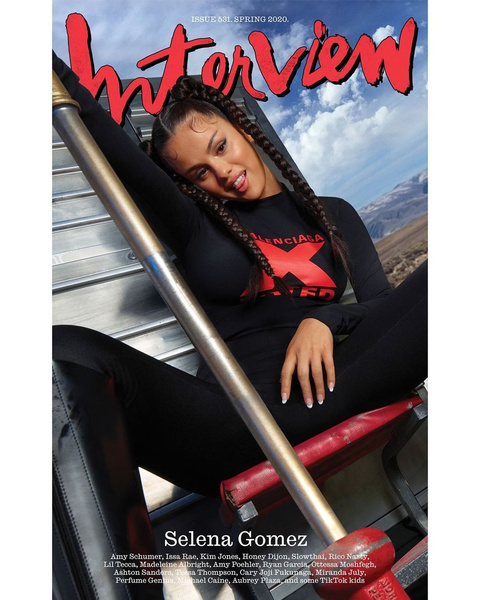
Селена также поведала, что у нее действительно были серьезные проблемы ментального характера из-за того, что СМИ постоянно освещали ее жизнь.
«То, как средства массовой информации иногда пытались объяснить происходящее с моей жизнью, звучало очень плохо, хотя на самом деле нет ничего плохого в том, что мне нужно было куда-то уехать или что я влюбилась.
Мне пришлось начать открываться, потому что эти люди лишали меня возможности рассказать свою историю, и это убивало меня. Я молода и собираюсь продолжать меняться, и никто не имеет права говорить мне о том, как жить мою жизнь».
Конечно, Селена имеет ввиду свои восьмилетние отношения с Джастином Бибером, которые широко освещались в средствах массовой информации.
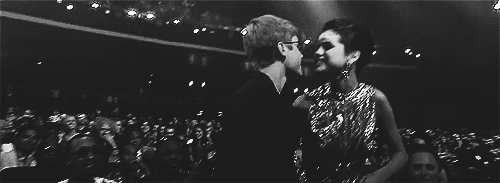
В интервью она призналась Эми, что в конце концов ей пришлось осознать, что ей нужно было упасть на самое дно, чтобы разобраться в том, что происходит. Это произошло, когда певица закончила курс лечения психического расстройства в прошлом году, и именно в то время она написала песню «Lose You to Love Me».
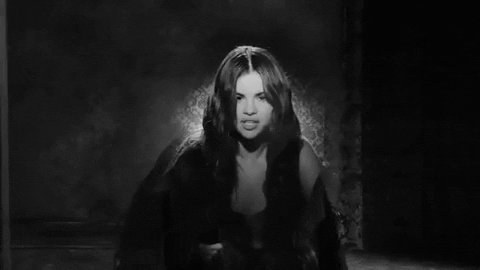
Сейчас Селнена старается избегать всего, что говорят о ней в медиапространстве. То же самое касается и ее музыки. Когда девушки обсуждали ее новый альбом «Rare», Шумер полюбопытствовала, читала ли Гомес какие-либо отзывы о альбоме, получившем признание критиков, и как они повлияли на нее.
«Да, я кое-что читала. Но только потому, что за последние пять лет не выпустила ни одного альбома. Мой друг прислал мне пару хороших отзывов, и это было потрясающе, потому что не все мои альбомы были замечены таким образом. Я не стала углубляться в изучение отзывов, потому что знаю, что со мной произойдет: попаду в интернет-спираль. Я не могу этого допустить», — пояснила артистка.
Наконец, Эми задала Селене очень важный вопрос: «Люди беспокоятся о тебе, я беспокоюсь о тебе. Стоит ли нам продолжать делать это?»
«Нет, — ответила Селена. — Я прошла через действительно сложные вещи, и из-за этих моментов, нравится мне это или нет, в СМИ была нарисована картина моей жизни. Люди беспокоятся обо мне, потому что в прошлом у меня были неприятности, и это очень мило. Но теперь я в порядке. Я справляюсь с тем, с чем имею дело, и если мне кажется, что у меня тяжелая неделя или я не в состоянии что-то сделать, я просто этого не делаю».
Говоря о планах на будущее, Селена Гомес призналась, что с нетерпением ждет работы над проектами, подобными документальному фильму «Living Undocumented» от Netflix, которые она спродюсировала:
«Я очень люблю музыку, но есть разные истории, которые я хочу рассказать, — объяснила она и добавила: я хочу поговорить о важных вещах. Я хочу, чтобы глупые вопросы о вещах, которые никого не волнуют, в конце концов прекратились. Задавайте мне вопросы о вещах, которые действительно имеют значение».
Селена, мы так тобой гордимся! Ты — одна из самых сильных женщин нашего поколения! С нетерпением ждем твоих новых проектов. И пусть ничто больше не сможет тебя сломить.
Дарья Тюрина play iconThe triangle icon that indicates to play
KATHERINE LANGFORD: What’s the best part of being a performer in 2018?
SELENA GOMEZ: I feel like it’s become a much safer place to express your concerns or even just to have the right to say, you know, “I’m not sure I feel comfortable in this environment.” On a personal level, having done this since I was seven, it’s probably the most comfortable I’ve ever felt. Even in auditions I feel like I’m way more confident than I would’ve been in the past. I’m not focused on the things that I used to be like, “Do I look old enough? Do I look sexy enough? Do I look cool enough? Am I nice enough, graceful enough?” Those sorts of things would come into my mind, but now I feel a little more liberated.
KL: You became famous in your early teens. Is there anything you feel you missed out on?
SG: I’ve spent probably too much time thinking about how my life could’ve been, so now I try to just have a sense of gratitude for how it is. I’ve never wanted to be the kind of person who’s like, “Oh, I wish I had a different life.” This is just kind of how it worked out for me. I’m at the point where I know the value of my privacy, and I understand how the system works, and once I realized and accepted that part of it I’ve become a little bit more fearless. I view it as a small price to pay for being able to have the life I have now.

Coach 1941 dress.
KL: This is Harper’s Bazaar, so we need to talk fashion. Are you a shoe girl or a bag girl?
SG: Oh, I’m both, and I always have been. Even when I was younger and wore backpacks, I was so excited to get a Betsey Johnson one. It seemed so much more exciting to me than clothes. And I absolutely love cool shoes. I always felt like what I wore didn’t matter unless I had a cool pair of shoes to go with it.
KL: What was your first major fashion purchase?
SG: A Louis Vuitton laptop bag right after I got my first big check on my own. I remember being so scared that I was gonna mess it up, and pretending I was some little businesswoman who needed to carry all her important things, even though it was just for my lip gloss and laptop.
KL: You’ve grown into quite the fashion plate. How would you describe your personal style?
SG: Definitely casual. Even if I’m not working out, I look like I’m working out. [Laughs]

Coach 1941 dress, necklace, and shoes.
KL: You’re the undisputed queen of Insta, of course. How do you draw the line between the public and the private Selena?
SG: I have a complex relationship with Instagram, to say the least. It has given me a voice amid all the noise of people trying to narrate my life for me and allows me to say, “Hey, I’m gonna post this, and this is gonna take care of the 1,200 stories that people think are interesting but actually aren’t, and aren’t even true.” So it empowers me in that way because it’s my words and my voice and my truth. The only thing that worries me is how much value people our age place on social media. It’s an incredible platform, but in a lot of ways it’s given young people, myself included, a false representation of what’s important. So, yeah, it’s a complex relationship. Probably one of my most difficult relationships.
KL: What is a typical Saturday night for you?
SG: It depends. If I’m in the mood for sister time, I’ll be with my sister, Gracie. She’s more mature than me in a lot of ways, and she’s four. [Laughs] If I want to hang out with my friends, I don’t really go to a lot of trendy places, so people know they shouldn’t really invite me to those places ’cause I’m not gonna go. I like going to nice restaurants, but I’m also into Chili’s. I love going to Chili’s and having queso and chips. I also love dancing. I really do. I love looking like a fool with my friends.
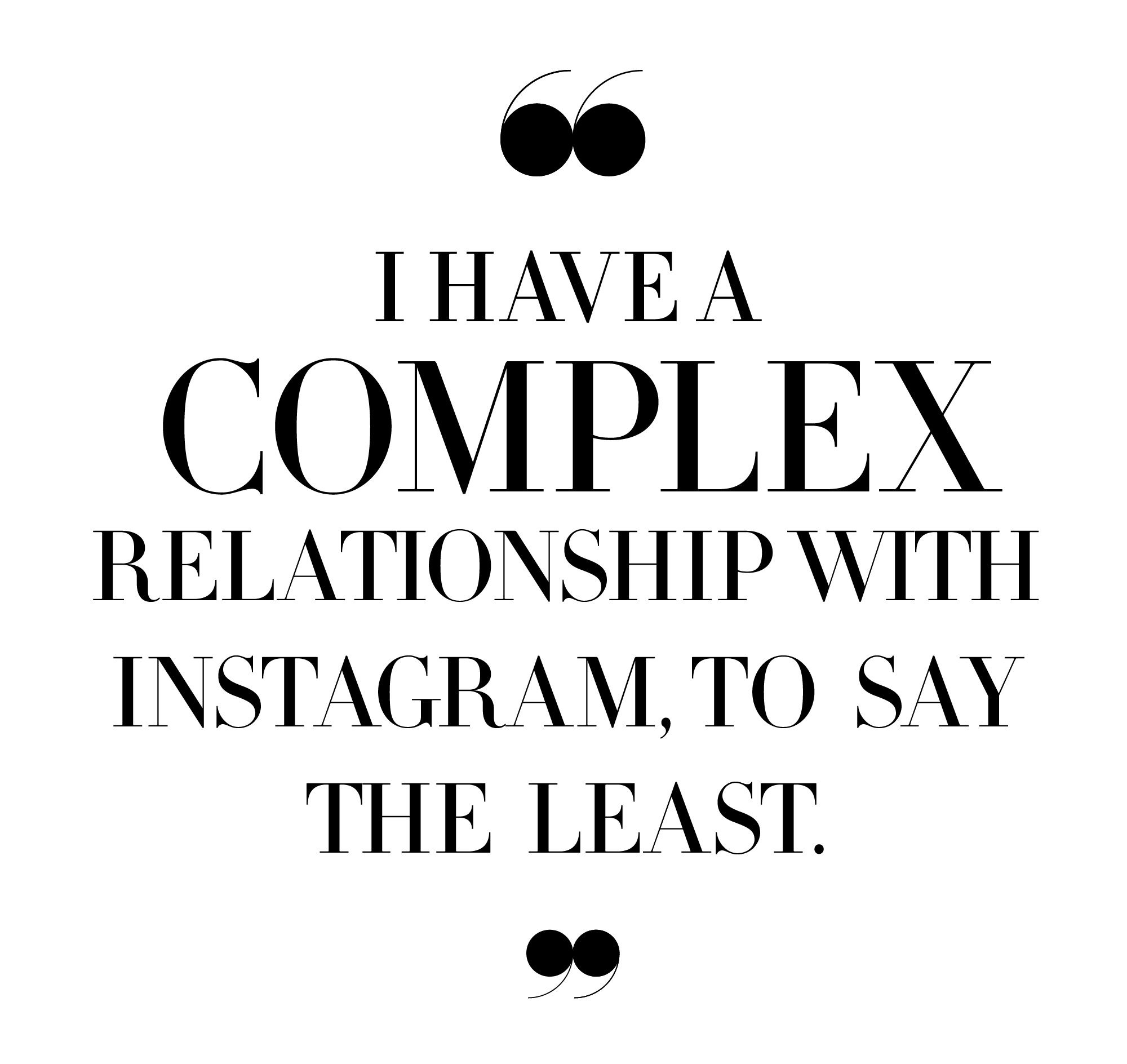
KL: How important is your Mexican heritage?
SG: Extremely. I look at myself in the mirror every day and think, “Man, I wish I knew more Spanish.” I’ll never forget when I was doing my TV show [Wizards of Waverly Place]; I think I was 15 or 16. We would do these live tapings every Friday, and one Friday there was this single mother with her four kids. She was Latin, and she came up to me after, crying. Her kids were so excited, but I noticed the mom, so I gave her a hug and asked, “Hey, are you okay?” And she was like, “It’s really incredible for my daughters to see that a Latina woman can be in this position and achieve her dreams, someone who isn’t the typical, you know, blonde with blue eyes.” And I knew what she meant. When I was younger my idol was Hilary Duff! I remember wanting blue eyes too. So I think I recognized then that it meant something to people. That it matters. Even recently I’ve experienced things with my dad that were racially charged. Most of the time, though, I try to separate my career from my culture because I don’t want people to judge me based on my looks when they have no idea who I am. And now more than ever, I’m proud of it. But I still need to learn Spanish. [Laughs]
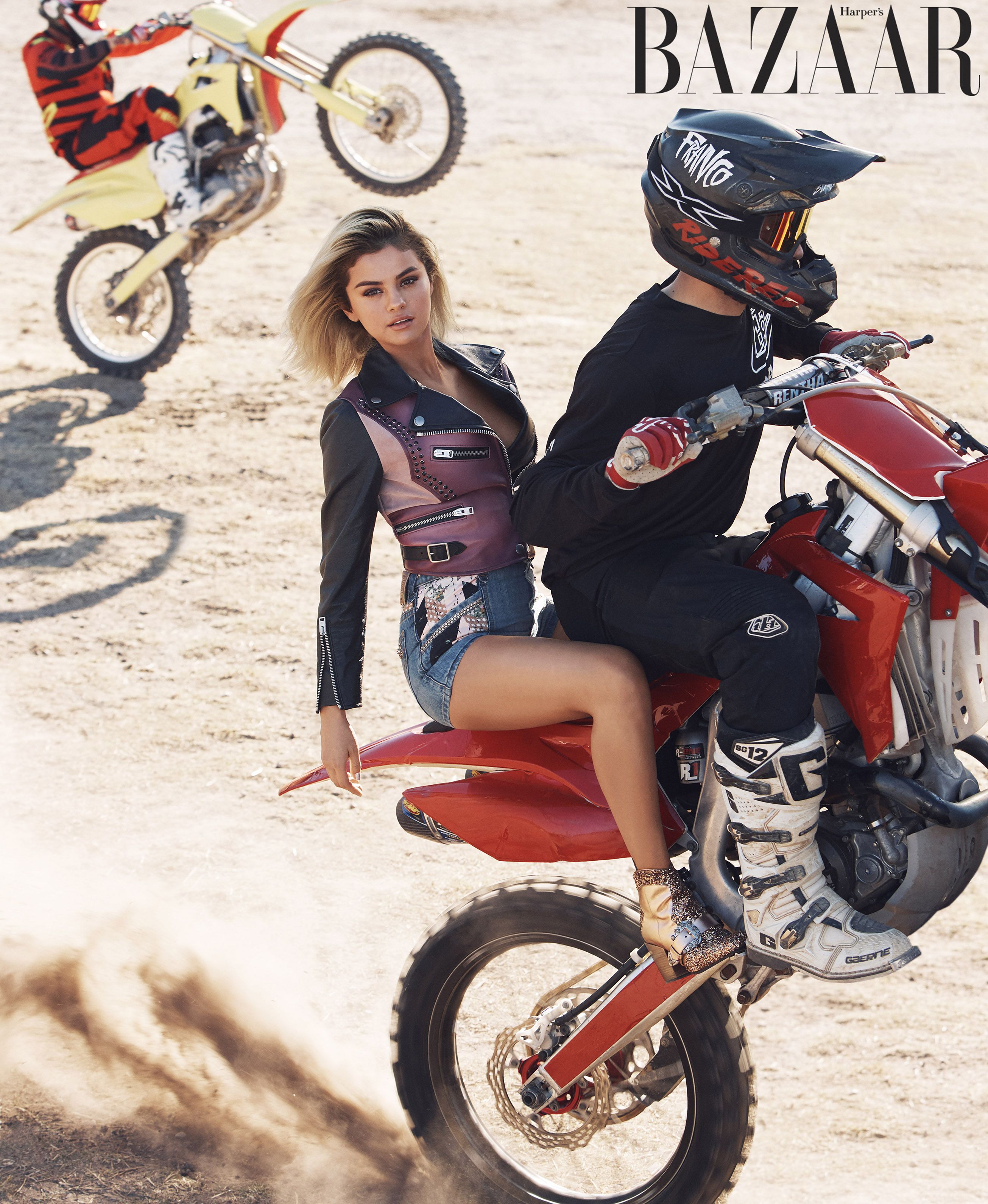
Coach 1941 jacket, shorts, and booties.
KL: Millennials take a lot of heat for being spoiled and lacking direction. Do you think we get a bad rap?
SG: I think millennials are a hell of a lot smarter than we’re given credit for. We’re more aware than we let on, and more exposed to everything that’s out there in the world, just from growing up on the Web, which is a little scary to think about.
KL: What do you think distinguishes our generation from the ones that came before?
SG: Mainly I think it’s the freedom to express ourselves and be who we are in an unapologetic way. Thanks to the Internet, no matter who you are, you know you’re not alone. Maybe a young boy or girl growing up in the South or wherever is confused and terrified to be who they are because they don’t think it’s right. Now they can see all around them people living free of pain, of hidden agendas, of secrets. I think secrets kill people, I really do. You end up trying to cover up so much of who you are for the sake of your family or whoever, and you think you’re bad for being different. So it’s powerful to see our generation breaking those boundaries and encouraging other people to do the same. There’s a sense of freedom that past generations weren’t able to have.
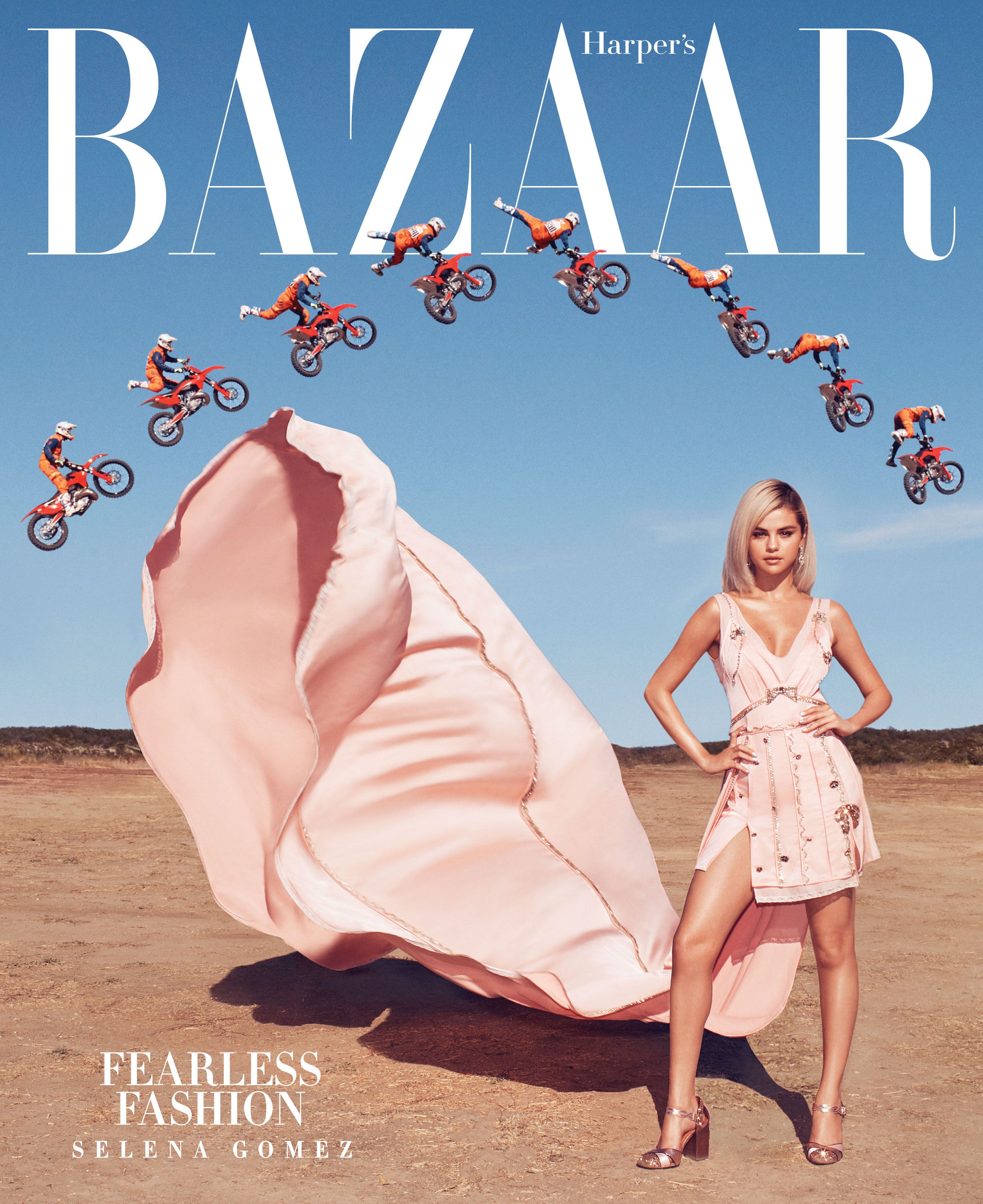
Coach 1941 gown, shoes and earrings.
KL: Who’s your biggest female role model?
SG: Meryl Streep has always been one of my idols because of her elegance and ability to always be true to herself but play these incredibly complex, difficult characters. I love how she carries herself. I feel the same way about Grace VanderWaal, who’s, like, 14 years old. I was at the Billboard Women in Music Awards last year with all these incredible women, but she was just radiant. She had this knowledge and wisdom about her that I wanted for myself. Oh, and I really love Amal Clooney. I know that sounds weird, but I’ve read a lot about her. She’s just incredible, the way she speaks and what she fights for. I guess I’m a bit all over the place.
KL: If you could trade places with any actress from the past, who would it be?
SG: Either Audrey Hepburn or Molly Ringwald in the ’80s. How amazing must that have been? She was a redhead and had freckles and was so incredibly cool. I still want to dress like her in Pretty in Pink.
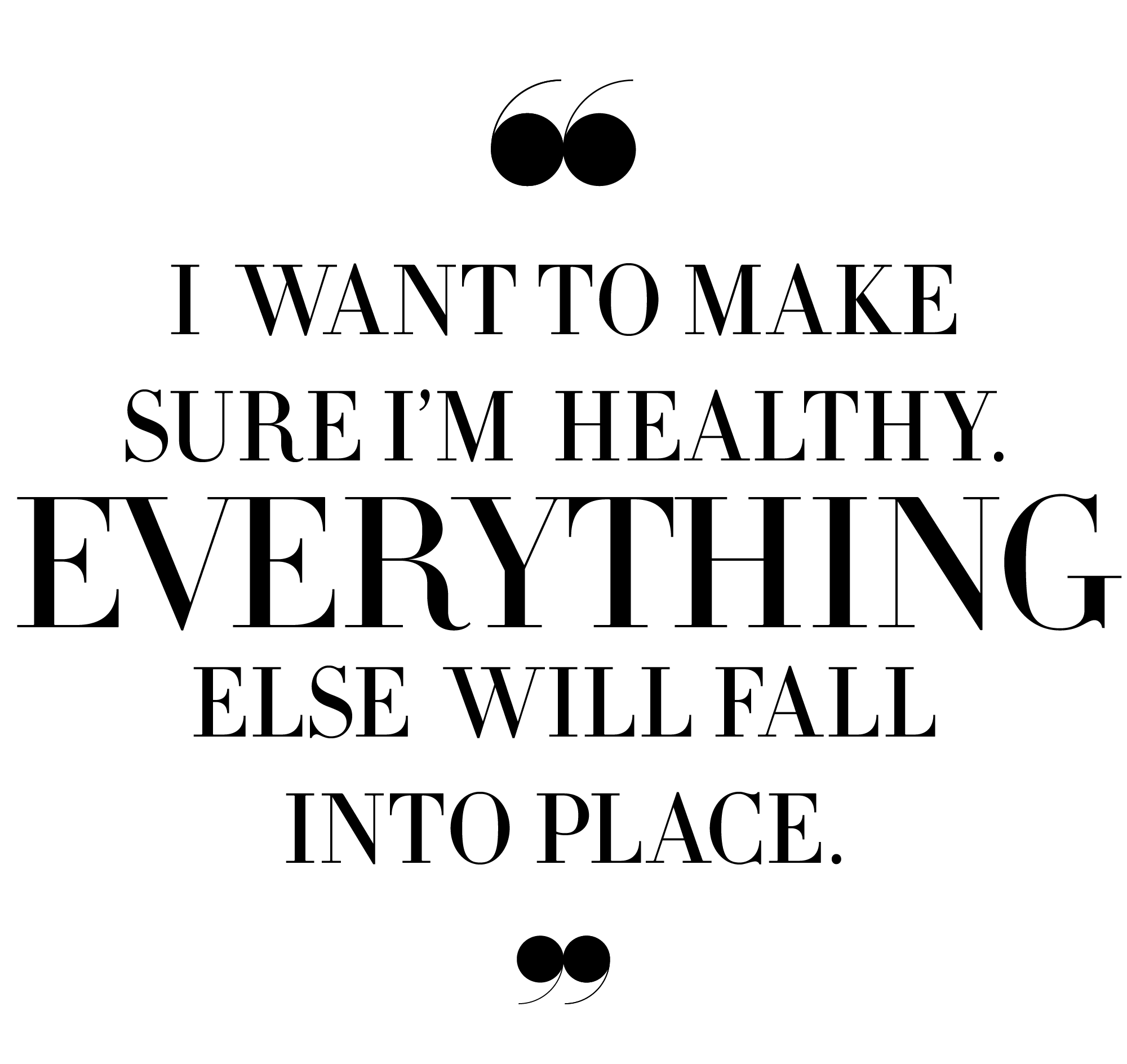
KL: Do you think 2018 will be a better year than the one we just had?
SG: I’m going to say yes because I believe that for myself. And anyone who knows me knows I will always start with my health and my well-being. I’ve had a lot of issues with depression and anxiety, and I’ve been very vocal about it, but it’s not something I feel I’ll ever overcome. There won’t be a day when I’m like, “Here I am in a pretty dress—I won!” I think it’s a battle I’m gonna have to face for the rest of my life, and I’m okay with that because I know that I’m choosing myself over anything else. I’m starting my year off with that thought. I want to make sure I’m healthy. If that’s good, everything else will fall into place. I don’t really set goals ’cause I don’t want to be disappointed if I don’t reach them, but I do want to work on my music too. My next album has been forever in the making. When people ask me why, I’m honest about it: It’s because I haven’t been ready. I mean, point-blank, I don’t feel confident enough in where my music is yet. If that takes 10 years, then it takes 10 years. I don’t care. Right now I just want to be super intentional with all of the things I’m doing.
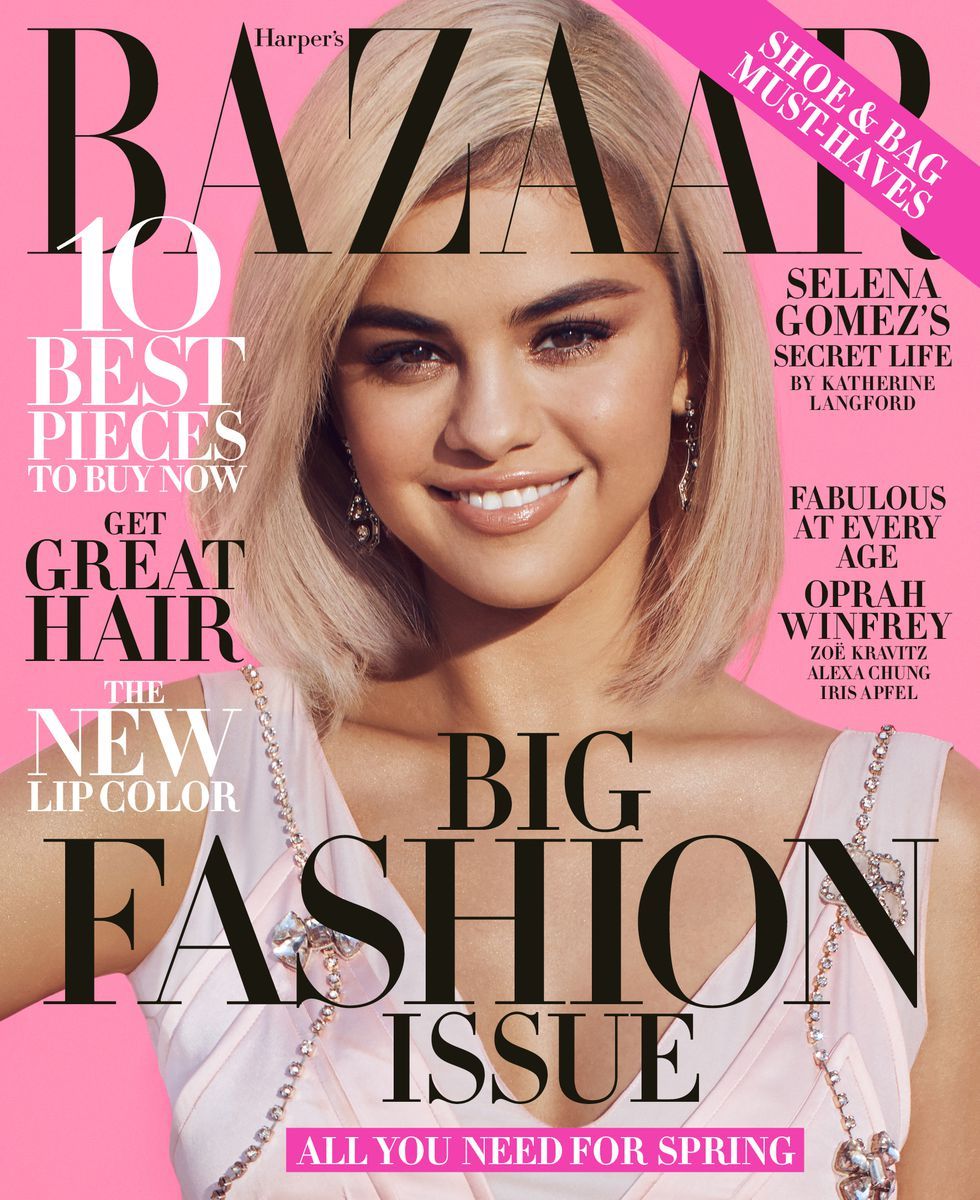
Coach 1941 gown and earrings.
This article originally appears in the March 2018 issue of Harper's Bazaar, available on newsstands February 20.
Hair: Danilo for Pantene; makeup: Hung Vanngo for Marc Jacobs Beauty; Manicure: Tom Bachik for OPI; Production: Kranky Produktions. Special thanks to L.A. Powersports, a division of L.A. Motorsports.
